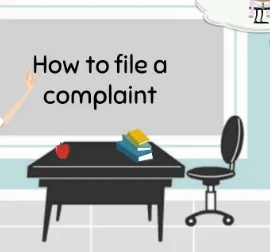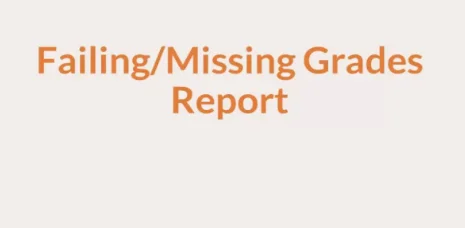Students look up to professors as role models as they expect them to hold high moral standards. Unfortunately, when a professor fails to live up to the expected standards, some students find it necessary to report such a lecture.
As a result, different universities and colleges have a judicial process for handling formal complaints. In this guide, we will explore how to report instructors to your dean or the appropriate faculty heads.
Complaints may usually remain valid as long as you have evidence that the professor acted in a way that violates the institution’s code of conduct. Every institution has a set of guidelines on how the affected person may lodge a complaint.
The best way to effectively report your professor to the dean or faculty head is by writing letters to the faculty, using your class representative, adopting a friendly approach, raising the issue in class, or via the official feedback box.
Steps to Follow When Reporting a Professor
The first step is to familiarize yourself with the university’s complaints policy. Remember, some policies specify the period during which your complaints remain valid.

Some institutions prefer that one makes an informal resolution, which means that the students should meet the professor and raise their concerns directly before making it formal.
Suppose the situation is severe, like sexual harassment, then one can skip the informal step and contact the dean or an equivalent office according to the structure of the university.
You should have valid facts that you expect the office to respond to formally. You can make a follow-up if you believe the matter is urgent.
1. Decide whether Formal or Informal
It is always a stressful procedure when one is making a complaint about a teacher. Firstly, many institutions expect one to resolve it informally. You can speak to the tutor or reach out to a person in authority who can speak on your behalf.
2. Understand the University Policy
Additionally, read the internal policy of the university to understand how they resolve such matters. For instance, some institutions outline them via a flow chart. To make your complaint valid, it is reasonable to submit the complaint after the incident.
3. Know Your Complaint
Have a clear understanding of your complaint concerns. It could work wonders if you narrow down your issues into a few brief points. Be specific with evidence to back it up. Also, you need to raise an issue that you believe the university has control over it.
For instance, if you are reporting on malpractice or poor grading, you should prove that you performed thorough research beforehand. You should know what you want from the complaint.
4. Submit a Formal Complaint
Write the formal complaints as per the institution’s procedures. Despite how tempting it can be, you should refrain from getting too personal.
Remain calm and rational and explain any unfair treatment for the authority to make an assessment. Lastly, wait for the response.
How to Complain about a Professor without Reporting
Anonymous Letter
You can opt to write an anonymous letter to the professor directly and explain your concerns about the biting issue. Alternatively, you can reach out to the higher authority and send a similar letter and observe if there are changes to the issue raised.

Through the Class Representative
A class representative can be useful in voicing the concerns of students, whether formally or informally. You can employ such an approach to avoid the victimization of the students.
Using the Feedback Box
Every department happens to have an opinion box. The purpose of such boxes is to allow confidential communication to flow and access the right party for action. Such boxes do not disclose whoever is raising the concern, hence effective in voicing the concerns.
Approaching the Professor Directly
Seeking the audience of the professor can still be an effective method of solving your issues informally. You can negotiate on the matter that you think is not favoring you and strike a balance.
Raising the Issue in Class
Well, a class can discuss this issue collectively and decide to approach the tutor in question.
You can have a meeting with your teacher and iron out any issue you think is bringing friction in class. Some of these issues could be a professor’s lateness to class or a student missing the grades.
Sending a Fellow Professor
You can still resolve to send a fellow professor who can intervene and settle matters on your behalf. It is a diplomatic way of solving any misunderstandings and reaching meaningful conclusions.
Diplomacy should always be the first priority when confronting an issue. Other methods can follow if you exhaust all options, as discussed in this section.
Reasons to Report a Professor
While there are a number of circumstances that can call for reporting a professor on the wrong, most students opt not to.

However, in some situations, they end up breaking the boundary and actually reporting the issue.
Several reasons can prompt a student to raise a complaint against a professor, as highlighted below.
1. Consistent Lateness
One should raise an alarm when the professor is coming late to do lecture sessions. You can ignore it if it happens on one or two occasions with an apology. This is acceptable due to the basic human reasons why a professor can be late for a few classes.
Unfortunately, if it is routine, then you should raise a formal complaint directly or indirectly and let the professor adjust to remain time-conscious. It is even worse if the lateness goes beyond the 15-minute rule observed by many university faculties.
2. Not Teaching well
The intention of attending lectures is to receive teaching service from the professor. If your professor fails to teach as per the course outline, one has a right to report such cases for corrective action.
A lazy professor can ruin your career if left unchecked. As observed in another post, in most cases, some of the professors do not teach well because of a number of reasons. Some of the reasons range from lack of experience to the lack of passion for education.
3. Being Rude to Students
There ought to be a smooth learning environment between the student and the tutor. A student should be free to interact with the tutor without cases of rudeness from the side of the tutor.
Unfortunately, if a professor decides to act rudely in several circumstances, then the affected party should learn to resolve and move on smoothly.
4. Disorganized Teaching methods
Before the semester starts, the professor should issue a course outline. Furthermore, the lessons should flow in accordance with the scheduled syllabus.
However, if a professor fails to deliver systematically, chances are that you may end up getting little in the process. For that matter, report such cases for possible mitigation.
5. Frequent Cases of Missing Grades

A professor is responsible for grading the student’s work.
In case a student fails to get his/her grades, then it exposes the incompetence of a given professor.
A student has a right to receive grades as a way of evaluation.
If such malpractices are evident, then you should seek an audience with the lecturer and find out the root course.
How Universities Handle Student Complaints against Professors
Harvard University
Harvard University has a definite policy that spells out how one should present a complaint within its structures. Any aggrieved student must use those channels to file a complaint against any malpractice involving a professor.
The university, through its Office of Dispute Resolution (ODR), receives such complaints from the affected party. The office investigates and interviews the victims and makes appropriate decisions.
University of Illinois
The University of Illinois has a mechanism for dealing with the elephant in the room. There is an office that offers dispute resolution services which receive all types of complaints and mediates to end the conflict.
For instance, when a professor is being unfair by failing to attend class, the student may file a complaint to this unit for necessary action to take effect.
University of Alabama
The first step is to raise an informal complaint among the affected parties. If unsatisfied with the move, then the student can reach out to the departmental head to resolve the issue.
The head of the department will work with the concerned parties until they reach a conclusion. Such a process should not exceed two weeks.
If they fail to find a solution, the departmental head can forward the issue to the Senior Associate, who will recommend a final solution to the Dean.
University of California
The University of California has a great way of solving conflicts between a student and the tutor. The aggrieved student should table the complaint to the head of the department.
If the head of the department fails to mitigate a solution, then the student can proceed to the office of the Dean for solutions. The dean’s office can further seek advice from the Academic Affairs office if the matter is complex.
University of Iowa
A student may have a serious complaint over the conduct of the professor. This university has channels that a student should use to present a complaint.
First, the aggrieved party should go to the head of the department. In case the issue goes out of hand, the student is at liberty to move to the office of the dean of faculty for a final decision.
Can you Report a Professor for Being Rude?
A student ought to have a smooth working relationship with her professor so that she may benefit from the resources he carries. In case he becomes rude to you, then you should report him or her to the authorities for possible replacements or further action.
Can you Report a Professor for Being Late?
You can report a professor for being late if it is consistent and affects the class. Being late alone is not malpractice; however, doing it as a habit is what can cause one to raise an alarm.
If the professor is ever late for the lesson while consuming more time on his/or her personal issue at the expense of students, then it is high time that you report such incidents for further steps.
Can you Report a Professor for not Teaching?
It could be reasonable to lodge a complaint to the concerned authority if the professor fails to teach habitually. You should have a reason to worry that the scope of work against the remaining period does not balance. For that reason, you can opt to report the matter for more elaboration and action.

